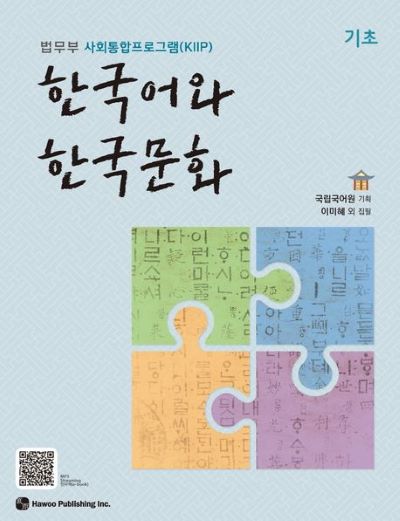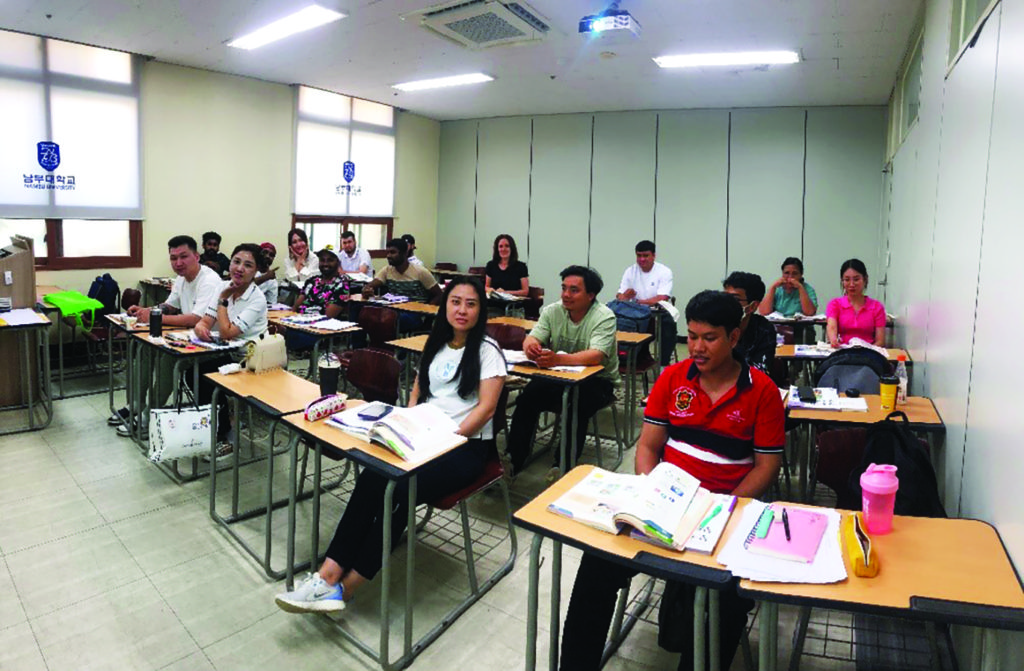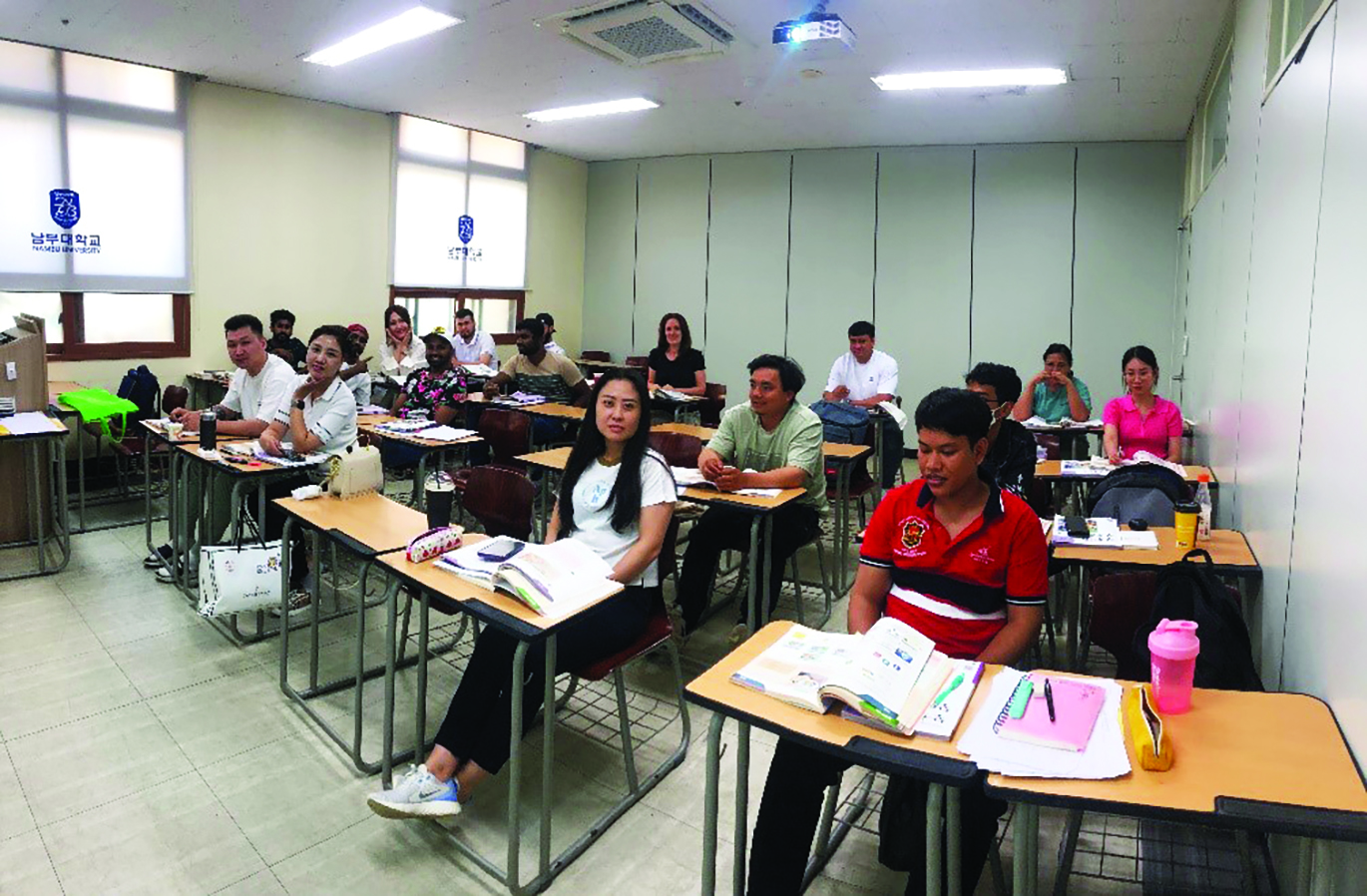Come an’ Getcha KIIP – The Korean Immigration Integration Program
By Clare Rawsterne
Anyone familiar with England, might know that the headline is a salute to the proverbial market stall owners of London, who call out over the crowds to sell their wares. I suppose the Korean equivalent would be the truck drivers – public address systems cranked up to full – who drive from street to street selling seasonal foods. Though, unlike those hard-working folk who must tack on a price for their goods, in the case of KIIP, there’s really no need.
KIIP is the Korean Immigration Integration Program, developed by the Ministry of Justice, which offers free language and culture classes to anyone who wishes to learn. I had been in Korea for several years before I became aware of KIIP and was relieved when it finally fell into my lap. I was, by this point, a veteran Google searcher of “Korean language classes,” “learn Korean,” “can someone please, for the love of god, teach me Korean?” and yet KIIP evaded me. One can only assume it was hiding somewhere in the depths of the internet.
My first attempt at learning Korean was with KDA, Korean Digital Academy, a course put together by a Canadian and a Korean. It was a great introduction to the language with videos and course materials online as well as a one-hour speaking class per week with a native Korean teacher. The combined efforts of a native English speaker fluent in Korean, and a native Korean speaker fluent in English, meant that the classes were delivered not only with language expertise but with empathy for all the embarrassments, hurdles, and herculean grammar flips one must do in one’s head to start making headway with the language.

After a couple of years of doing KDA in a Rachel and Ross (of Friends) on-again-off-again style – I am giving away my age with that pop-culture reference – I decided that I wanted to stay in Korea on a more permanent basis. This came with a few self-imposed requirements: first, I would have to step up my Korean game with more regular classes; and second, I would have to look into changing my visa in order to feel like my life here was more rooted and stable. Back to Google. It would not best me this time. Actually, my Google searches still didn’t turn up much, but I did find a video by the amazing Megan Moon, an American YouTuber living in Korea, who got her residency visa through KIIP.
Two for two, language classes and a visa. I was intrigued. Getting the basic information still required quite a bit of internet rifling and a fair amount of reading, but eventually I got it down to several key points that convinced me the program was the stuff of dreams. And here is that list for you:
- Classes are free.
- Classes are frequent.
- Each level of the program you complete gives you points towards a visa.
In order to improve my Korean, particularly my speaking and listening, I knew a one-hour class once a week would suffice no longer. I needed more, but thinking about the cost of private classes made me want to hide under the covers. And thinking about language exchange websites made me want to remain under the covers for all eternity. Thankfully, all, bar one, of the KIIP courses are one-hundred hours of classes, and all for the delicious price of… nothing. You have to pay for the textbook and the workbook, which currently cost around ten thousand won a piece and are available through Coupang. Here endeth the financial sacrifice.

There are two options for completing the 100 hours. The first is to take classes online. Pre-Covid, online classes were reserved for those not able to attend in-person classes, valid reasons being pregnancy, mobility issues, distance, etc. If you live in Gwangju or Jeollanam-do, in-person classes can be harder to find, so online is sometimes the only option. Online classes are generally two hours per night, Monday–Friday, with a variety of start times available. If, however, you are weary of living life through a screen, then an in-person class is available at Nambu University in Gwangju. Classes are every Sunday from 9 a.m. to 6 p.m. You will have classmates from around the globe and a well-trained teacher, adept at communicating with learners entirely through Korean.
A little more information before I sign off: in order to register for KIIP. go to https://www.socinet.go.kr/. I would advise getting a Korean friend to help, as navigating the website is challenging. There are six levels in the program: Levels 0 to 5, Level 0 being for those who need to start right from the beginning with Hangeul. There are several ways to get into the program: you can sign up and start from Level 0, or you can test into the program by registering for a Sajeon-pyeonga (사전평가), or level test. The level test is comprised of a written exam and a speaking test. The speaking test requires reading a short passage and answering some questions about the contents, it is conducted in groups of five. If you have passed TOPIK then submitting that certificate at your local immigration office will also gain you entry into the program. If you have TOPIK Level 1, you will enter KIIP at Level 2, if you have TOPIK Level 2, you will enter KIIP at Level 3, and so on.
Aside from the obvious benefits of very little cost and a high number of class hours, there are other delights to be had. Post-Covid, being in a classroom with a group of people makes me slightly less afraid of the impending AI takeover. Additionally, all these scrummy humans are going through the same experience, which is affirming. I am the only native English speaker in my class of around twenty people, which means that we all have to communicate using Korean, leading to lots of speaking and listening practice. One member of the class, let’s call him “Sam,” uses every grammar point to talk about his wife and two girlfriends, which often has the group roaring with laughter. He does not seem remotely aware of how funny he is, which only makes him funnier. Finally, our teacher is a lively and engaging woman who makes an effort to remember all of our names and always asks Sam about his wife and girlfriends. She teaches us through the textbook as well as through relatable anecdotes, while guiding us on how best to pass the exam. All in all, I look forward to my KIIP Sundays.
Resource
https://www.socinet.go.kr/ – Sign up for KIIP and register for the level test and classes.
The Author
Clare Rawsterne was made in Manchester, England. She is an expert on rain, Sherlock Holmes, and every Mancunian’s favorite pastime: complaining.







